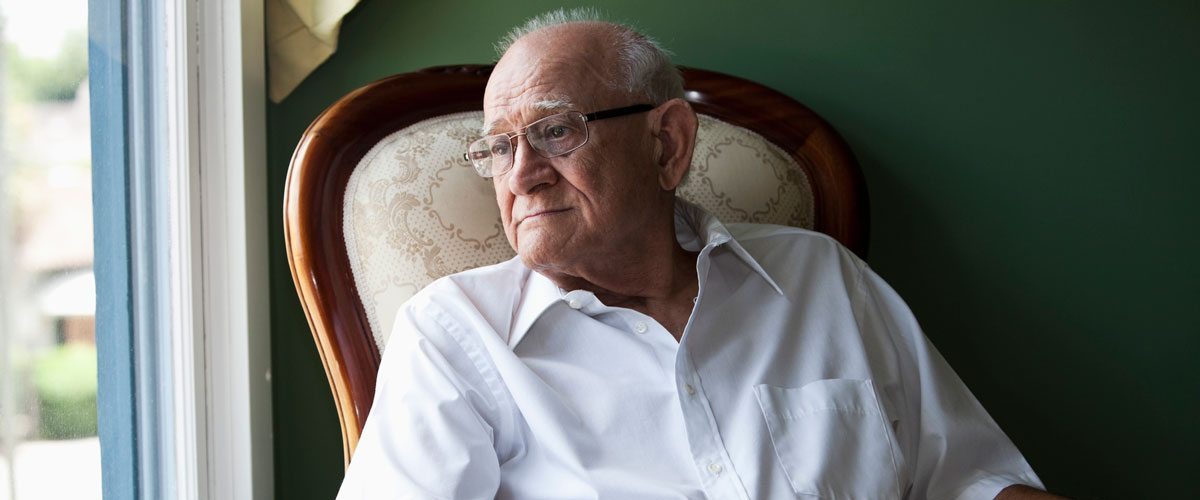How to Spot Depression in Seniors
Depression often manifests differently in the elderly. Know the symptoms and how treatment can help.

You’d think it would be easy to detect depression in an older person — after all, many signs of sadness, including tears and lethargy, are visible.
But depression, like many other ailments, often manifests differently in the elderly compared with younger people. For example, an older person who is depressed doesn’t necessarily feel sad but may complain of lack of energy and attribute symptoms to age. And that can make it trickier for doctors, loved ones, and older people themselves to spot depression. The fact that certain medications and medical illnesses can bring on depression — or mimic it — also complicates matters, making it tough to know when to get crucial help.
“When an older person has untreated depression, he or she may lose interest in activities that previously held their interest, and retreat from social interaction and physical activities, which may eventually lead to loss of function,” says Dr. Ronald D. Adelman, co-chief of the Division of Geriatrics and Palliative Medicine at NewYork-Presbyterian/Weill Cornell Medical Center. “That’s one reason it’s important not to brush off any changes in behavior as simply part of ‘old age.’”
While depression in older adults is less common than in younger adults, says Dr. Adelman, the problem is, when it is present, even doctors are likely to overlook it. A study in the Journal of the American Geriatrics Society found that primary care physicians spend very little time discussing mental health with their older patients, and are unlikely to refer them to a mental health expert even if they are showing classic signs of depression.
Here’s what you need to know, whether you love an older individual or happen to be one.
Be Aware of Symptoms
With an untreated depression, older people may show a loss of concentration and other cognitive changes — symptoms that may be erroneously attributed to dementia, according to Dr. Adelman, the Emilie Roy Corey Professor of Geriatrics and Gerontology at Weill Cornell Medicine.
What’s more, older people are apt to suffer from one or more chronic illnesses, some of which can cause depression. For instance, many people with Parkinson’s disease develop depression.
Along with cognitive symptoms, experiencing a depressed mood, loss of pleasure in activities, significant weight loss or gain, decrease or increase in appetite, sleeping too much or too little, fatigue, feelings of worthlessness, or excessive or inappropriate guilt calls for a trip to the doctor for a depression screening and medical exam, Dr. Adelman says.
Needless to say, if an individual has recurrent thoughts of death or suicide or attempts suicide, this calls for an emergency psychiatric evaluation.
“Treatment depends on the person having a comprehensive evaluation,” says Dr. Granieri, assistant professor of medicine at Columbia University Irving Medical Center. “Interventions depend on whether the signs or symptoms are true depression only, on the type of depression, or if there is depression mixed with other disorders. The interventions may include medications, talk therapy, socialization or change in social environment, optimizing care of other physical disorders, or changing medications for other conditions that the person may already be on.”
With older adults, many conditions can either mimic depression or exacerbate it, so it is necessary to have an expert evaluate for depression.
Dr. Evelyn Granieri
Understand the Stigma
One issue that can make older people reluctant to get treatment for depression — or make it tough for those who love them to coax them to go to a doctor — is the belief that getting treatment for depression is a sign of weakness or lack of moral fiber.
“For patients over 85, in particular, there tends to be a lot of stigma associated with depression. Often, patients have the sense that if they’re depressed, it means they don’t have the backbone that they used to have,” says Dr. Adelman. “One thing we try to do at the Irving Sherwood Wright Center on Aging (part of NewYork-Presbyterian’s Ambulatory Care Network) is make it clear that depression is a disease just like high blood pressure — it’s not something the patient is responsible for,” he explains. “And it requires aggressive treatment. If you don’t treat it, it can cause prolonged suffering and significant loss of function.”
“As part of the Division of Geriatric Medicine and Aging at NewYork-Presbyterian/Columbia, we provide comprehensive assessment and care for older adults — medical, functional, cognitive, and psychosocial care — and that includes looking out for signs of depression,” says Dr. Granieri.
The good news is that treatment for depression, whether medication, therapy, or a combination of both, can be just as effective in older people as in younger people.
“Once depression is treated, cognitive abilities can come right back, as well as quality of life,” says Dr. Adelman. “One of the key principles in geriatric medicine is that you have to look at the person as a whole, rather than merely trying to diagnose a disease. Because geriatricians ask older people about a wide range of medical issues, psychological issues, social issues, and advance care planning — they are always on the lookout for depression.”
For more information about joining a treatment study, visit here. For other services, visit here.
